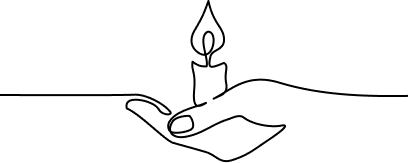Book Description:Linfield, Susie, The Lions’ Den: Zionism and the Left from Hannah Arendt to Noam Chomsky
Bibliographic Information:
Linfield, Susie, The Lions’ Den: Zionism and the Left from Hannah Arendt to Noam Chomsky (New Haven: Yale University Press, 2019)
Summary
Professor Linfield’s book is a lively discussion of work related to Israel, Zionism, Judaism, and Jews, produced by shapers of current opinions on those topics that dominate discussion in much of the Left. She divides the book into chapters that are somewhat arbitrary classifications of the thinkers. Two are “Europeans:” Hannah Arendt and Arthur Koestler. Four are “Socialists:” Maxime Robinson, Isaac Deutscher, Albert Memmi, and Fred Halliday. Two are “Americans:” I.F. Stone and Noam Chomsky. Through close readings of their work, she shows how attitudes toward Israel changed after 1948, as part of a larger shift in thinking. The Left moved from a focus on building socialism to its current focus on anti-imperialism. Along the way, this led some thinkers to severe errors in evaluating the situation in the Middle East / North Africa, particularly in relation to the Israel/Palestine conflict. Linfield is a proud person of the Left and writes openly from that perspective. The Lions’ Den is not a book about Antisemitism as such, with the notable exception of Arthur Koestler, whose chapter she subtitles “The Zionist as Anti-Semite (sic).” However, because it is a study of sometimes complex thinking about seemingly intractable problems related to the Israel/Palestine conflict, it offers us a view of intellectual terrain where antisemitic thinking can (and sadly, all too often does) flourish. The book is full of examples where distinguished thinkers fell into peculiar traps that sent their thinking off on deeply mistaken tangents. Arendt, in particular, comes to mind. Nevertheless, these are examples where thinkers can make mistakes without being bigoted. We need to understand and explain the difference if we are to educate effectively against bigotry. This can be especially difficult when we deal with extreme critics like Noam Chomsky whose approach to the situation, as described by Linfield, comes closer to myth than to any recognizable intellectually viable system of thinking.
Style
Linfield is a talented writer. She has a gift for explaining complex ideas and making connections between them with clarity. She also makes great efforts to write fairly but without pulling punches.
Classroom
This book should find much use in college and graduate level teaching, and not only in the context of the study of Israel and Palestine.
Certainly, The Lions’ Den is about the thinking of people who were and are often harsh critics of Israel. Therefore, it can be a valuable addition to a curriculum that seeks to probe where anti-Israel criticism crosses lines into antisemitism. It can be helpful to have examples where criticism is wrong, unfair, or misguided but not antisemitic. Linfield’s presentation of the work of I.F. Stone comes to mind as a handy example of that.
The Lions’ Den is also a useful example of how to appropriately and fairly critique the thinking of deep thinkers. Linfield seems to have run out of patience with Koestler, with considerable justification. Her response to Arendt’s reporting on the Eichmann Trial, or Chomsky’s often strange misuse of sources, model a point where condemnation, appropriately applied in context, is called for.
